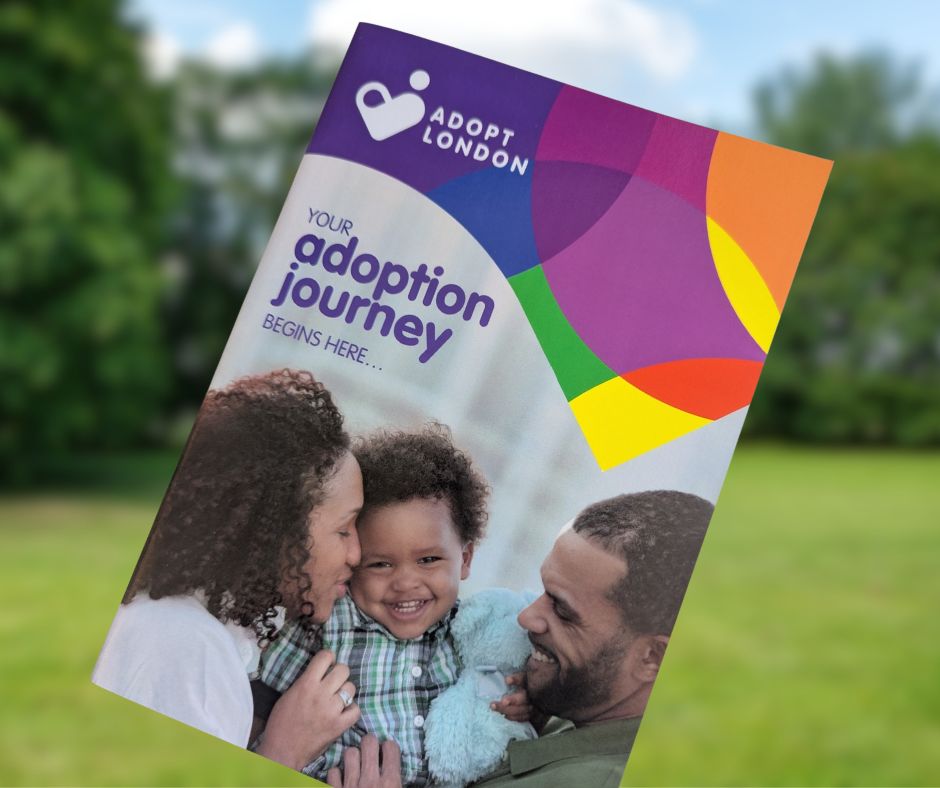Who is eligible for adoption?
Many people rule themselves out from exploring adoption because they assume they may not meet the criteria. Whilst there are certain criteria for adoption eligibility, what matters most is your capacity to provide a safe, loving and stable home where a child can grow and thrive.

Who can adopt?
Who is eligible for adoption? Adopters come from all walks of life. You can be single, married, in a long-term partnership or divorced. You may already be a parent or have no children of your own. What unites all adopters is a deep sense of commitment, empathy, patience and the ability to offer a child the security they need.
Info pack pageTo be eligible to adopt a child in the UK, the criteria are as follows:
- Age restriction: You must be over 21 years old
- Residency: Adopters must have a fixed or permanent home in the UK and have lived in the UK for at least one year
- Criminal background: member of your household cannot have a conviction or caution for a serious offence against a child or vulnerable person
There are other factors to consider:
- Home suitability: Whether you rent or own your home is not a factor, however, your home must be suitable for a child’s needs, and you will require a spare bedroom for the child.
- Health & wellbeing: You must have the physical and mental energy to care for a child
- Relationship duration: If you are planning to adopt as a couple, you typically need to demonstrate that your relationship is stable and enduring. You need to have been living together at least two years.
- Your relationship status or sexuality is not a barrier to adoption: You can apply as a single person or part of a couple.
- You don’t have to have children already, but if you do, their needs and perspectives will be thoughtfully considered as part of the process. Your financial situation and employment status will also be considered, but it’s important to know that low income or being unemployed does not rule you out. What matters most is your ability to provide a supportive environment for a child.
Does this sound like you?
We’re here to help you start your adoption journey.Adoption Eligibility FAQs
There are a lot of myths and misconceptions around adoption eligibility that can often discourage people from taking the first step to explore adoption. Here are some of the frequently asked questions around adoption eligibility:
Can I adopt if I am self-employed? +
Yes, you can adopt if you are self-employed. As with all applicants, your financial situation will be explored, including how you plan to support a child both initially and long-term. You’ll need to take adoption leave – ideally up to 12 months – to help your child settle in. You’ll be asked how you plan to manage financially during this time. Flexibility around childcare and your working hours will also be considered.
Currently, self-employed adopters aren’t eligible for statutory government adoption pay, though this is under review. For more guidance, speak to our team and check out this report from Home For Good: Adoption pay: Levelling up for the self-employed.
Can you adopt if you rent? +
Yes, you can adopt a child if you rent. Homeownership is not a requirement for adoption in the UK, so long as your rental agreement is stable and your living space is suitable to accommodate a child.
Can I adopt if my UK residence is uncertain? +
Yes, it is possible to adopt if your UK residence is uncertain, but you will need to demonstrate your habitual residence or domicile in the UK for at least one year before applying to adopt. To adopt in England, you must legally be a resident in the UK, the Channel Islands, or the Isle of Man. UK citizens living abroad cannot adopt a child from the UK.
If you are an EU national, you can consider adopting a child in the UK if you or your partner has a fixed or permanent home in the UK and has lived in the UK for at least one year. You may need to take legal advice if you are uncertain.
Is there an age limit of adoption? +
There is no legal upper age limit for adoption in the UK, but you must be at least 21 years old to adopt. While there is no specific upper age limit of adoption, you will be assessed on your ability to provide for a child’s needs throughout their childhood and into adulthood, so your health and vitality will be assessed when considering the type of children that could be placed with you.
Does my marital status affect my adoption eligibility? +
No, your marital status does not generally affect your adoption eligibility. Adopters are welcome regardless of whether they are single, married or in a long-term live-in relationship. Adopted children have often experienced considerable disruption in their lives, so ensuring that your situation is stable is an important part of the assessment. Adopting a child is a big life decision, so there would need to be evidence that you have managed a variety of situations together. We also welcome applications from single people who have support from family, friends or communities.
Can you adopt if you are single? +
Yes, you can adopt if you are single. Being a single person can really benefit some of our children, and many single people make very successful adoptive parents. You will need to consider and assess the extra demands of being a single parent, such as your finances, for example. You will also need to have a strong support network around you. Find out more about single person adoption.
Can single men adopt? +
Yes, single men can adopt in the UK. We welcome applications from single people, regardless of gender. One gender is not favoured over the other when assessing an individual’s suitability to adopt. You are assessed on your ability to provide a safe, stable and nurturing environment for a child. You will, however, need to consider and assess the extra demands of being a single parent, such as your finances, for example. You will also need to have a strong support network around you.
Can we adopt if we are in a new relationship? +
A couple will need to have been living together for at least two years. As with all potential parents, you will need to demonstrate that your relationship is strong, stable and well-established. It is important that you can show how you have navigated challenges together and how you plan to share parenting responsibilities.
Will my sexuality or gender affect my adoption eligibility? +
No, your sexuality or gender will not affect your adoption eligibility. We value diversity and welcome adopters regardless of their sexuality or gender. The same criteria apply to all prospective adopters. If an adopter has transitioned, then it would be important that they were established in their new gender and had a secure sense of self before starting the adoption assessment process.
Can I adopt if I am an LGBTQ+ person? +
Yes, you can adopt if you are an LGBTQ+ person. We welcome adopters of any sexuality. What matters is your ability to offer a stable home, love and support to a child who needs it. Adopters can be single or looking to adopt jointly with their spouse or partner. If you have transitioned, then it would be important that you are established in your new gender and have a secure sense of yourself prior to starting the adoption assessment process.
Can I adopt if I am overweight? +
Being overweight does not prevent someone from being an adopter. What matters most is your overall health and ability to care for a child throughout their upbringing. As part of the adoption eligibility process, we’ll consider medical advice, including a report from your GP, to ensure you’re physically well enough to parent into adulthood and support a healthy, active lifestyle for a child. If there are concerns about health risks, we’ll talk these through with care and support, always focusing on your capacity to meet a child’s needs now and in the future.
Can I adopt if I have health problems? +
Whilst most health problems won’t prevent you from adopting a child, we will need to discuss any health concerns in more detail and gain advice from our medical advisers. Every prospective adopter will need to undergo a medical from their GP. Our focus will always be on how adopters can consistently meet the needs of a child throughout their childhood and into adulthood. If you do have a health problem, we will consider the support you have from a partner or other close family members or friends, and the long-term prognosis of your condition.
Can you adopt if you smoke? +
Yes, you can adopt if you smoke; however, it can limit the types of children you may be able to adopt. For instance, if you wish to adopt a child under the age of five or a child with particular medical conditions, you are likely to need to be smoke-free for at least six months before making an application. This will also apply to your back-up carers.
Smokers wishing to adopt are at a disadvantage compared with non-smokers because the health risks are so clear. Vaping can also present risks that need to be considered carefully and discussed with a social worker. Current guidance around the risks of vaping is under constant review. We do not know all the effects and want to give children the best opportunities.
Do I need to have finished fertility treatment to start my adoption journey? +
Yes, we recommend waiting until your fertility treatment has come to a complete end before you start your adoption journey. It is then important to give yourself time to process and come to terms with the end of that chapter. This is a deeply personal experience, and everyone’s journey is different, however, we recommend around six months to reflect on your circumstances. We’re here to talk this through with you and offer guidance based on your individual circumstances. While counselling isn’t a requirement, many people find it helpful after fertility treatment and seeking support is viewed positively.
Can people with disabilities adopt? +
Yes, people with disabilities can adopt, provided that you are able to offer safe and consistent care for a child. As part of the early assessment process, a medical report, alongside an understanding of your circumstances, will help determine your ability to parent throughout the child’s upbringing. This includes looking at the long-term impact of your condition, any steps you’ve taken to manage it, and the support you have from a partner, family, or friends.
Can I adopt if I don’t speak English? +
It is advisable for adoptive parents to be reasonably fluent in English so the concepts of adopting a child can be fully understood, and so that they can advocate for a child once that child is placed. We recommend that you attend one of the readily available English courses prior to enquiring about adoption.
What criminal offences might prevent me from adopting? +
Criminal offences involving children, vulnerable adults or serious sexual and violent crimes will generally prevent someone from adopting. Other offences may also raise concern, depending on when they were committed, their severity, the circumstances and the current attitude to those offences. We would encourage you to be honest and discuss all convictions, spent or unspent, openly with your adoption agency.
Many people with minor or historic offences, especially those from youth or isolated incidents, are still approved to adopt. What matters most is honesty and the opportunity to discuss your background fully.
Can I adopt if I have a faith or follow a religion? +
Yes, you can adopt if you have a faith or follow a religion. We welcome adopters with or without faith. The children who need to be placed from adoption come from many different cultures, backgrounds and religions, and it is good if the family they are placed with reflects this. We also ask adopters if they are able to consider adopting a child from an ethnicity, culture or religion that is different from their own.
Do you want to speak to someone?
Let us help you to find the advice you need



